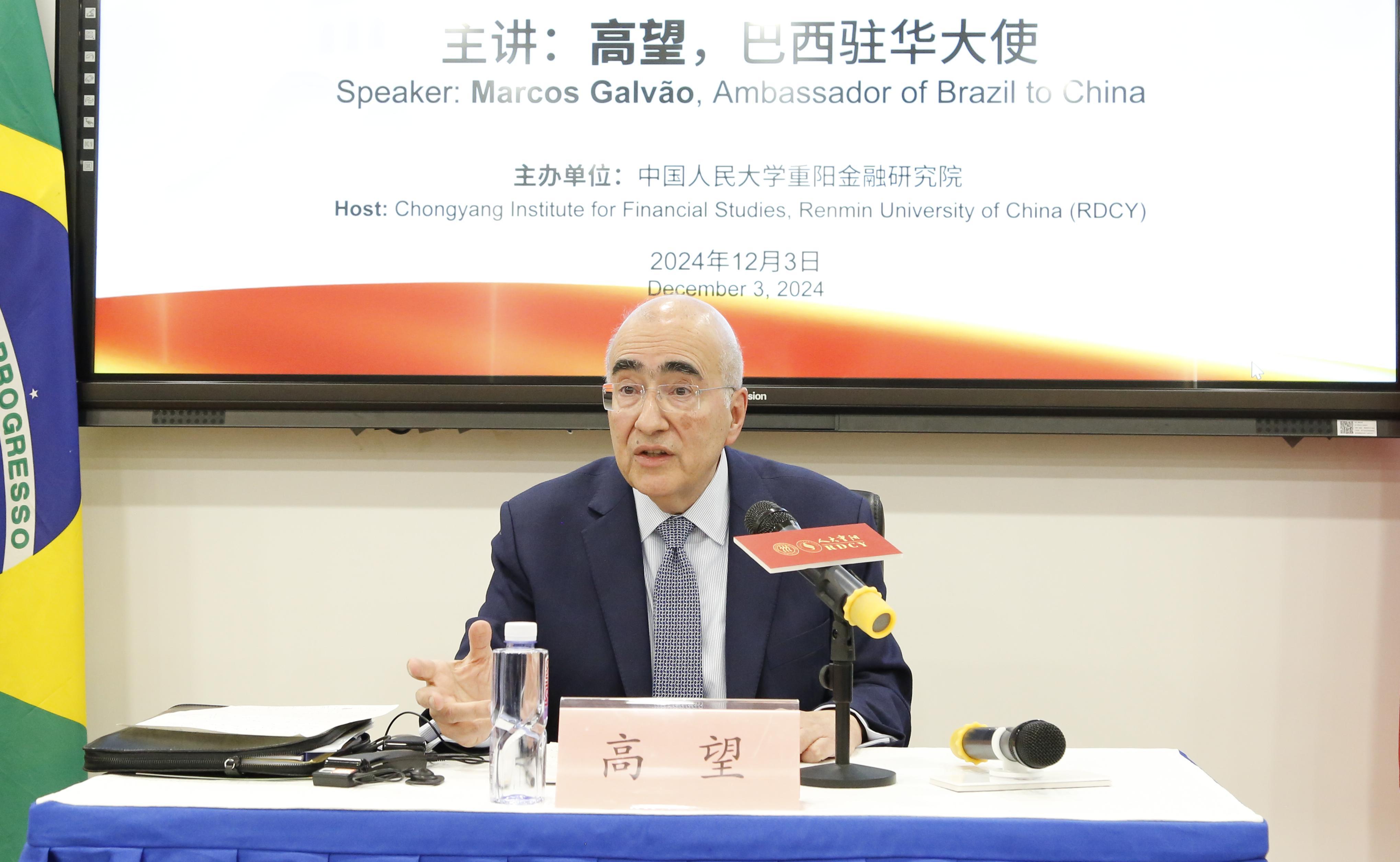Ambassador: Mutual Trust, Respect Drive China-Brazil Relations

A key factor behind the thriving China-Brazil relations is trust and mutual respect, Brazil's ambassador to China Marcos Galvão said at a forum held by the Chongyang Institute for Financial Studies, Renmin University of China (RDCY) on December 3.
This year marks the 50th anniversary of the establishment of diplomatic relations between China and Brazil. The successful partnership is the result of concerted efforts by diplomats, government officials, businesses, academics, think tanks, and civil society on both sides, Galvão said.
China has been Brazil’s largest trading partner since 2009, while Brazil was China’s ninth largest trading partner in 2023. Brazil accounts for about 25 percent of total China's agricultural imports, the largest source for China.
Trade remains the most visible aspect of this relationship, but investment is playing an increasingly important role, Galvão said. One prominent example is the growing presence of Chinese electric vehicle (EV) companies. For example, Chinese automaker BYD has gained wide popularity in the Brazilian market. Recently, BYD announced that it will manufacture its vehicles in Brazil in March 2025.
Brazil sees China as a key partner in facilitating its energy transition and seeks to deepen bilateral cooperation, Galvão said. Brazil welcomes Chinese EV manufacturers with an eye on expanding beyond just car assembly. This includes enhancing collaboration in areas like battery production and recycling, which would help upgrade Brazil’s supply chain and support its industrial goals.
Brazil is now pivoting towards a strategy of "re-industrialization," aiming to boost its production of higher-value-added goods.
Chinese investments have also contributed to Brazil’s clean energy infrastructure. Brazil boasts one of the cleanest energy mixes globally, with its electricity largely generated from renewable sources. However, the expansion of renewable energy production faces challenges due to deficiencies in transmission lines, Galvão said. There is a need for more lines to connect power generation sites to the national grid, an area where Chinese companies, experienced in large-scale, high-quality transmission technology, could play a crucial role.
Galvão said Brazil and China are geographically distant, with distinct histories, cultures, and political systems. Yet, this diversity has not impeded the progress of Brazil-China relations.
Meanwhile, greater cultural and educational exchanges, particularly among young people, are needed, he said.
Meetings and dialogues like the forum held by the RDCY serve as part of the ongoing effort to enhance mutual understanding, Galvão said.






